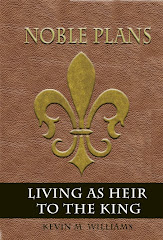Essentially, the individual who accomplished the most heroic feat out of the war band was given an additional allotment, and extra helping from the choicest meat and drink at the chieftain's table.
It was a noble plan, to award the finest and most accomplished for deeds well done. The concept is not without biblical precedent.
"Then Israel said to Joseph, 'Behold, I am about to die, but God will be with you, and bring you back to the land of your fathers. And I give you one portion more than your brothers, which I took from the hand of the Amorite with my sword and my bow'" (Gen 48:21-22).Where this notion seems to collapse, both the biblical idea as well as the Celtic practice, is that jealousies often quickly follow. The hero may have his portion, but many others feel slighted and succumb to envy. Jacob's son Joseph is a great example of someone favored by his father and by God, yet deeply resented by his brothers. The young hero David was persecuted by King Saul. Jesus' parable about the prodigal son (Luke 15:22-32) provides one more illustration.
"But he shall acknowledge the first-born, the son of the unloved, by giving him a double portion of all that he has, for he is the beginning of his strength; to him belongs the right of the first-born" (Deut 21:17).
"For the LORD’S portion is His people; Jacob is the allotment of His inheritance" (Deut 32:9).
"Now he gave to Caleb the son of Jephunneh a portion among the sons of Judah, according to the command of the LORD to Joshua . . ." (Jos 15:13).
In short, the "extra portion" has seen the rise of a type of class envy, with the masses deciding that what someone favored has been granted really isn't fair. It is — in its own way — what has plagued God's Chosen People throughout the ages as the Jewish nation has, in every generation, been prey for persecution and genocide. Why? For no other reason than they are the apple of God's eye (Zec 2:8).
Here is the takeaway value from this noble plan. 1) Award those who have achieved excellence. Acknowledge their deeds, with wisdom, judicious insight, and without favoritism. From spouse to child, sibling to co-worker, your praise will be as cool water to a parched throat to the one who receives such honor.
2) Do not envy those who have been chosen to receive honor. Celebrate with them and you will double the blessing of the "hero," for yourself, and likely gain a friend in the process. Covetousness does not become a noble man or woman. In fact, it is contrary to the noble-minded. Choose instead to celebrate and rejoice at others achievements.
3) If you are the champion being celebrated, receive your gifts and accolades with grace and humility. And should you find that you are honored too often, advise giving the portion to another well-deserving person who may know the joy and satisfaction of a job well done.
Awarding the Curadmír — the hero's portion — is a noble plan, and it can achieve valiant outcomes and blessings. If handled poorly, it can lead to disastrous ends, so use wisdom and prayer in your quest for what is right.
 |
"A noble man devises noble plans; and by noble plans he stands."
– Isaiah 32:8


















